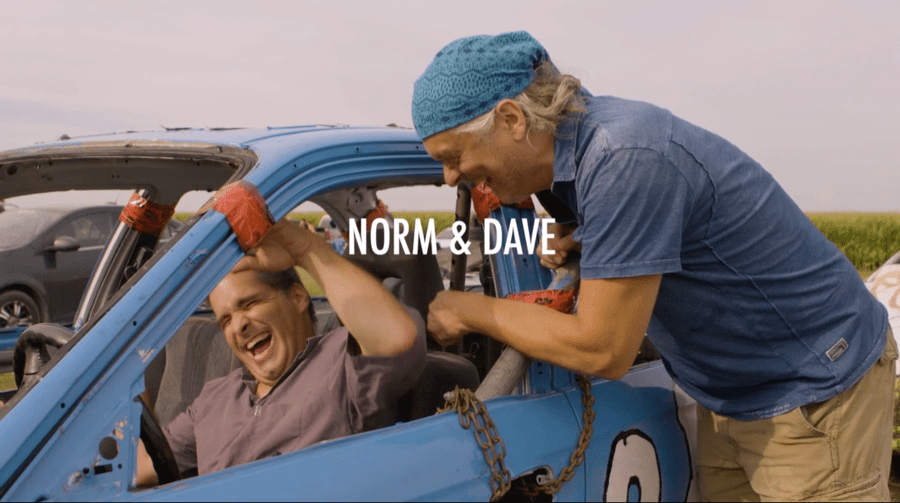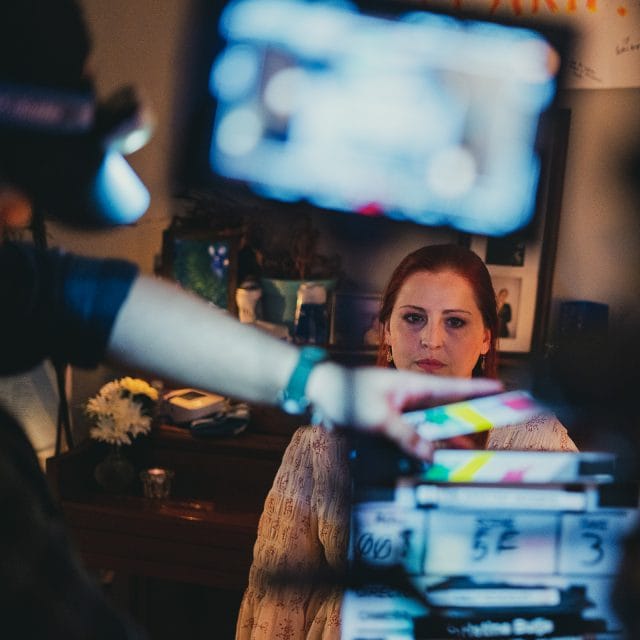Embracing diversity requires authenticity
Diversity, be it physical, cultural, technical, or intellectual, is desperately in need of more authentic representation on the small screen. As previously noted in these pages, body diversity is in the worst shape of them all. The good news is that there are a number of very promising projects in the works with the potential of making diversity more present on the small screen. We do know that the most successful programs are those where the subject matter is something the creators and producers have personally experienced. To learn more, we spoke with industry professionals about diversity, their specific projects, and how they’re dealing with it more authentically than ever today.
J’t’aime gros*
In November 2021, Videotron launched J’t’aime gros on its Vrai platform. The series, which deals with fatphobia (discrimination against overweight people), is produced by Iprod Média and hosted by Christine Morency and Mélissa Bédard. Producer Isabelle Maréchal has had an interest in the subject for many years. “As someone who’s had eating disorders as a child and a teen, I know that body image and weight are real issues you have to deal with,” she said. “I thought a lot about it and it was pretty much always on my mind, so I made sure to meet with Mickaël Bergeron and Edith Bernier when their books came out. Actually, there are quite a few books on fatphobia out there and I kept coming face to face with the condition. I said to myself, if there are that many people writing about it, there must be many times more affected and it’s time we did something about it."

As the first Quebec series to deal with fatphobia, Maréchal gratefully acknowledges the broadcaster’s confidence in her project. She believes the authenticity and transparency of the two hosts has a lot to do with the success of J’t’aime gros. “They never held back when talking about what they went through. When they talked about body image, it was their bodies they were talking about. To let it all out in front of the crew, in front of everyone, and to share your most intimate anxieties like that, takes letting your guard down all the way and that’s something they did for everyone I think.” Maréchal also said that quite a few Quebec celebrities took to social media to weigh in on the subject when the series ended, creating a snowball effect that was the icing on the cake.
Norm et Dave*
The Norm et Dave documentary, directed by Jimmy Larouche and produced by B-612, is actually in production at the time of writing. It’s scheduled for broadcast on TV5. “The theme is friendship based on differences,” Larouche said. It tracks actors Normand D’Amour and David Richer as they take part in a demolition derby. There’s nothing really unusual about their friendship except that Dave has cerebral palsy which affects his speech and puts him in a wheelchair. Larouche admits that he was somewhat nervous about meeting Dave for the first time. Dealing with diversity, in this case a disability, often takes us out of our comfort zone. “I try to tackle subjects where I have preconceived ideas. It’s kind of like therapy for me. It helps me to better understand situations that I can’t get my head around fully. I tell myself that if it works with me, it should work for others, too,” he said. In the project’s production bible, Larouche wrote that he also was the target of fatphobic taunts as a kid. This experience was, in fact, what motivated him to explore the impact of being different.
According to associate producer Claudia Monfette, TV5 was a big help in B-612’s efforts to get funding from the Société de développement des entreprises culturelles (SODEC). “TV5 endorsed the project from the get-go, but the licensing was insufficient. We had applied to the SODEC production assistance program. And even with a perfect score, our application was rejected twice!” she said. “We finally got a waiver authorized by SODEC for a third deposit before we got the go-ahead. We’re talking about a two-year delay here. Fortunately, TV5 never lost faith and changed our time slot with each SODEC rejection.”

The project creator’s objective was simple. “I’d like people to reserve judgment when they meet someone for the first time who’s different from them, the way they talk, or move, or whatever. So when all is said and done, they end up like me and my best friend, Dave. What could be simpler than that?” Larouche said.
Frida c’est moi*
Sophie Faucher has been playing the role of Frida Kahlo on stage for more than thirty years. In 2016, she published Frida c’est moi, a children’s book with illustrations by Cara Carmina, to tell the amazing story of the famous Mexican artist. Using her works as a base, Tobo Studio is producing an animated webseries for Télé-Québec scheduled for broadcast in summer 2023.
“Tobo proposed the project to Télé-Quebec because we were impressed with the high quality of the books Sophie and Cara were creating. They approach their topics in a meaningful and thoughtful way, while covering all the bases. And Cara’s bold style makes her visuals really stand out. We started the journey by partnering with the CMF–SODEC program for adapting a Quebec literary work,” said producer Florence Roche.
In a single production cycle, with pre-development in the fall followed by a production filing in the spring, Tobo got the green light to begin animation, a super expedited process, according to Roche.

As a passionate expert on Frida Kahlo’s career, Faucher said the webseries will focus on the impact polio, a disease she contracted at age six, had on the artist’s life. The series will cover the bullying Kahlo endured because she was different and how her determination and resilience helped her overcome this and other hardships. “She sees her legs getting thinner and thinner than the other kids’. She’s confined to bed. She has to miss school. It was maddening and frustrating, and she thought it would never end. Thankfully her father was there for her, and he decided his daughter would recover through sports. And by working hard and getting fit, Kahlo was finally able to deal with the bullying,” said Faucher.
Faucher feels that bullying is an important topic to cover despite the young audience the series is targeting. “Kids appreciate it when we tell it like it is. They want to hear the simple truth. Just because they’re little, there’s no reason to keep them in the dark. They can take it. And when it leads to clarity and diversity, well, I’m all for it,” she said.
Laughing Cat Productions
Body diversity and inclusion are so central to its values, that Toronto-based start-up Laughing Cat Productions made them part of its corporate mission. When actor and producer Emily Schooley founded the company in 2020, she made this deliberate choice when she noticed she was getting fewer invitations to audition after she underwent a body change.
“As a woman in the industry, the amount of representation that we have on screen for women, and the roles that are being written for women and who we are seeing cast on screen, it was always thin, able-bodied, white, or light-skinned women, often very young,” she said.

She therefore made the decision to create her own company and her own projects, more often than not, are self-financed.
“I started writing women-focused work. Then from there on, I started casting for my projects. I like to use the word intersectional inclusion, looking at different points of identity. I will always prioritize casting people who are coming from these more marginalized groups, as well as the people we hire for the crew.”
Schooley acknowledges and emphasizes the added difficulty this represents. That being said, Laughing Cat has not yet had the occasion to apply for support for its projects from any of the various Canadian funding organizations.
*The producers of J’t’aime gros, Norm et Dave, and Frida et moi have all received financial support from the CMF



